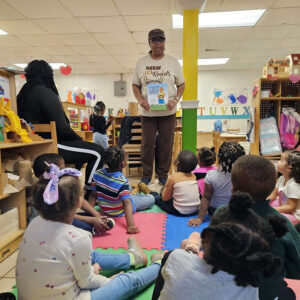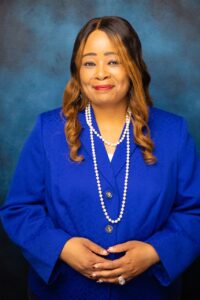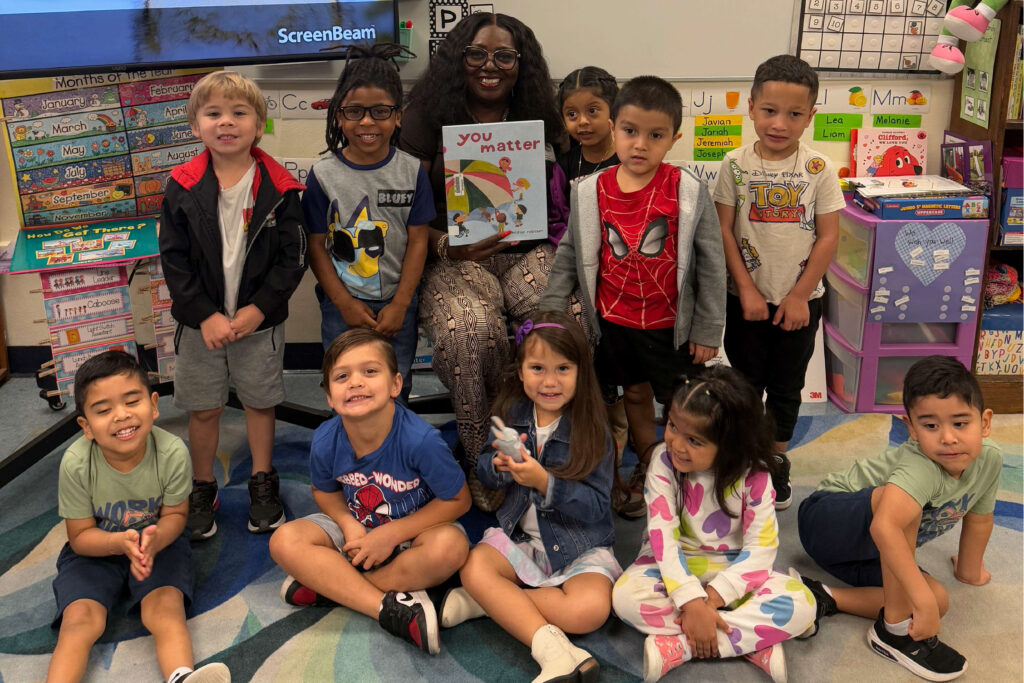By: Sonda Vasquez, National 1st Vice President and Program Chair, National Hook-Up of Black Women, Inc.
The African American Read-In (AARI), founded by Dr. Jerrie Cobb Scott and sustained by the Black Caucus of NCTE, has become a vital event for celebrating African American authors and promoting literacy. As a 501(c)(3) charitable organization, the National Hook-Up of Black Women, Inc. (NHBW) has proudly participated in AARI for more than 16 years, engaging communities across the United States and fostering a love for African American literature.

NHBW’s involvement in AARI began with the launch of its Reading for Life program in 2009, a grassroots initiative designed to raise reading levels among children. This program has created reading corners and rooms in communities and offers free books for children to take home. By providing these resources, NHBW aims to improve literacy in communities that are traditionally underserved, ensuring that young readers have the tools they need to succeed.
Coming Together as a Community
Each year, NHBW hosts Read-Ins in 22 locations across 13 states, where individuals come together to read and discuss works by African American authors. These events are held virtually and/or in person, including Chat and Chew sessions, which offer a space for participants to engage with literature while celebrating culture and community.
A central focus of NHBW’s participation in AARI is amplifying African American voices. Through Read-In events, NHBW highlights the contributions of African American authors and ensures their works are accessible to all. The organization also distributes free books to children and families in areas that are traditionally underserved, giving them access to stories that reflect their experiences and heritage.
In addition to providing books, NHBW organizes open mics and Read-Ins where local African American authors can showcase their work. These events celebrate the richness of African American literature while fostering pride and cultural awareness in the community.
Collaborating for Greater Impact

NHBW’s participation in AARI extends beyond its own events. The organization partners with schools, churches, daycares, libraries, community centers, and nonprofits to broaden its reach and impact. These partnerships allow NHBW to distribute books, host Read-Ins, and engage communities in meaningful conversations about the importance of literacy, culture, and empowerment.
Since we first engaged in the African American Read-In, NHBW has used the event as a platform to educate, encourage, and empower communities nationwide. Through its Reading for Life program and ongoing partnerships, NHBW remains committed to improving literacy and celebrating African American authors.
By continuing to promote African American literature and support literacy initiatives, NHBW works to create lasting change in communities, empowering women, children, and families to thrive. Join us in celebrating the power of literature and the contributions of African American authors.
Additional resources:
- Access NCTE’s African American Read-In Toolkit.
- Add your own event to the NCTE calendar. This will ensure it’s counted in our annual AARI Report Card.
 Sonda Vasquez is the National 1st Vice President and Program Chair of the National Hook-Up of Black Women, Inc. In this role, she is responsible for analyzing the previous year’s programs, helping chapters maximize their strengths and address any limitations.
Sonda Vasquez is the National 1st Vice President and Program Chair of the National Hook-Up of Black Women, Inc. In this role, she is responsible for analyzing the previous year’s programs, helping chapters maximize their strengths and address any limitations.
It is the policy of NCTE in all publications, including the Literacy & NCTE blog, to provide a forum for the open discussion of ideas concerning the content and the teaching of English and the language arts. Publicity accorded to any particular point of view does not imply endorsement by the Executive Committee, the Board of Directors, the staff, or the membership at large, except in announcements of policy, where such endorsement is clearly specified.

